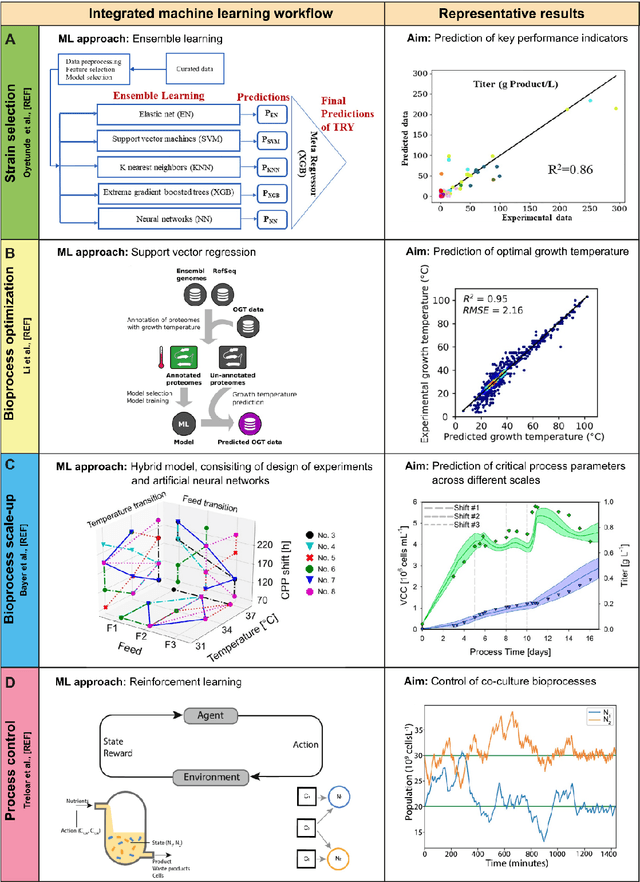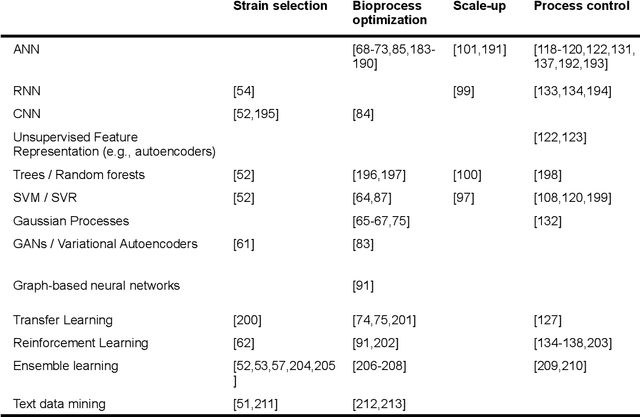Laura Marie Helleckes
Machine learning in bioprocess development: From promise to practice
Oct 04, 2022

Abstract:Fostered by novel analytical techniques, digitalization and automation, modern bioprocess development provides high amounts of heterogeneous experimental data, containing valuable process information. In this context, data-driven methods like machine learning (ML) approaches have a high potential to rationally explore large design spaces while exploiting experimental facilities most efficiently. The aim of this review is to demonstrate how ML methods have been applied so far in bioprocess development, especially in strain engineering and selection, bioprocess optimization, scale-up, monitoring and control of bioprocesses. For each topic, we will highlight successful application cases, current challenges and point out domains that can potentially benefit from technology transfer and further progress in the field of ML.
 Add to Chrome
Add to Chrome Add to Firefox
Add to Firefox Add to Edge
Add to Edge